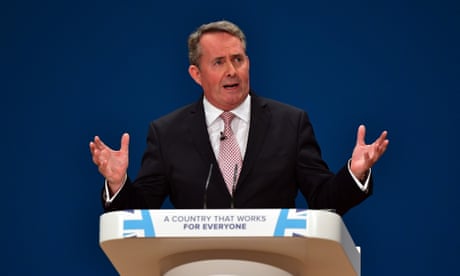I realised it only after having done it. On Tuesday I was watching my kids playing with other children in a London park. I was about to call out to them when I intuitively caught myself. Having lived here for most of their life, my children speak flawless English. I, however, have a clear Dutch accent. Yelling to them would suddenly single them out as foreigners to the other children. Only six months ago none of this would have occurred to me. Now I find myself lowering my voice.
Something is rotting in England and the Brexit referendum result seems to have given the rot a boost of oxygen. The problem is not that a majority of English people or their government are racist or xenophobic; they are not. The problem is that those English people who are racist seem to think they have won the Brexit referendum and that now is open season. The government is doing precious little to counter this impression, while the powerful tabloids are feeding it, day in day out.
Yesterday’s Daily Mail splash was a new low. Featuring nine small photos of lorry drivers on their phones, the tabloid claims to have caught “17 foreign truckers using their phones at 50mph”. The key word here of course is “foreign”, establishing an unconscious link in people’s minds between “foreign” and evil. The Daily Mail has been at this for a long time, with my personal “favourite” its front page about “EU killers and rapists we’ve failed to deport”.
Recent research suggests that humans are predisposed to “learn” negative stereotypes. Our brains are more likely to remember negative information than positive information, especially about groups of whom we already hold negative views. Such a harmful cognitive feedback loop would call for extra caution when reporting, making sure ethnicity or religion is included only when relevant to the story. “Foreign lorry drivers using their phones while driving” does not pass that test, unless you believe English drivers never use their phones on the road.

LSE foreign academics told they will not be asked to advise UK on Brexit
“Foreigner”. When I came to live here five years ago that word felt so different from how it does today. Britain was the country that would give the governorship of the Bank of England to a Canadian – try to imagine Germany making a non-German head of the Bundesbank. London’s financial sector, where I had come to do research, was teeming with European immigrants telling me that it was in the City that for the first time ever they no longer felt like a foreigner. “It’s like they don’t see my skin colour,” a French-Algerian, Turkish-German or Surinamese-Dutch banker would say with genuine emotion. “It’s all about what you can do here, not how you look or where you are from.”
Fast forward a few years and a woman of Polish origin goes on BBC Question Time to say she no longer feels welcome in Britain. The audience boos her, proving her point better than she ever could. This is now a country where a minister calls for firms to publish lists with the “foreign” workers they employ, and where another government ministry tells the London School of Economics to no longer put forward any of its “foreign” academics for consultancy work on Brexit. Those two statements were rescinded, but the same is not true of another, made by a minister who described UK-based EU nationals such as me as among Britain’s most valuable bargaining chips in Brussels.
Meanwhile, the Daily Express and the Daily Mail seem to compete for the most outrageous incitement against migrants, refugees, “foreigners”. Indeed, in some quarters of England today, calling somebody “foreign” is enough to win the argument. The European court of justice? The European court of human rights? Well, they are staffed by foreign judges, so case closed.

Liam Fox: EU nationals in UK one of 'main cards' in Brexit negotiations
It is strange how these things get under your skin, when you realise that for millions of tabloid readers you are a “foreigner” rather than a fellow European. It suddenly feels significant that in the English language “foreigner” and “alien” are synonyms. When I have to fill out a form for the NHS, having to choose between “British white” and “Any other white” no longer looks so innocent; the same with schools having to report their pupils’ racial and ethnic backgrounds.
When I now see somebody reading the Daily Mail I can’t help thinking: why would you pay money to read invented horror stories about people like me? I am a supremely privileged middle-class Dutchman who can always return to his homeland – an even more prosperous place than England. But what must it be like for a 13-year-old UK-born girl of Kosovan descent growing up in Sunderland?
Usually a piece like this concludes with a sanctimonious warning of what history tells us xenophobic incitement ultimately leads to. But we are well past that. Jo Cox is dead. Hate crime figures have soared. Some people simply seem to have taken the Daily Mail at its word: our country is flooded by evil foreigners. The politicians are in cahoots with them. Who will speak for England?